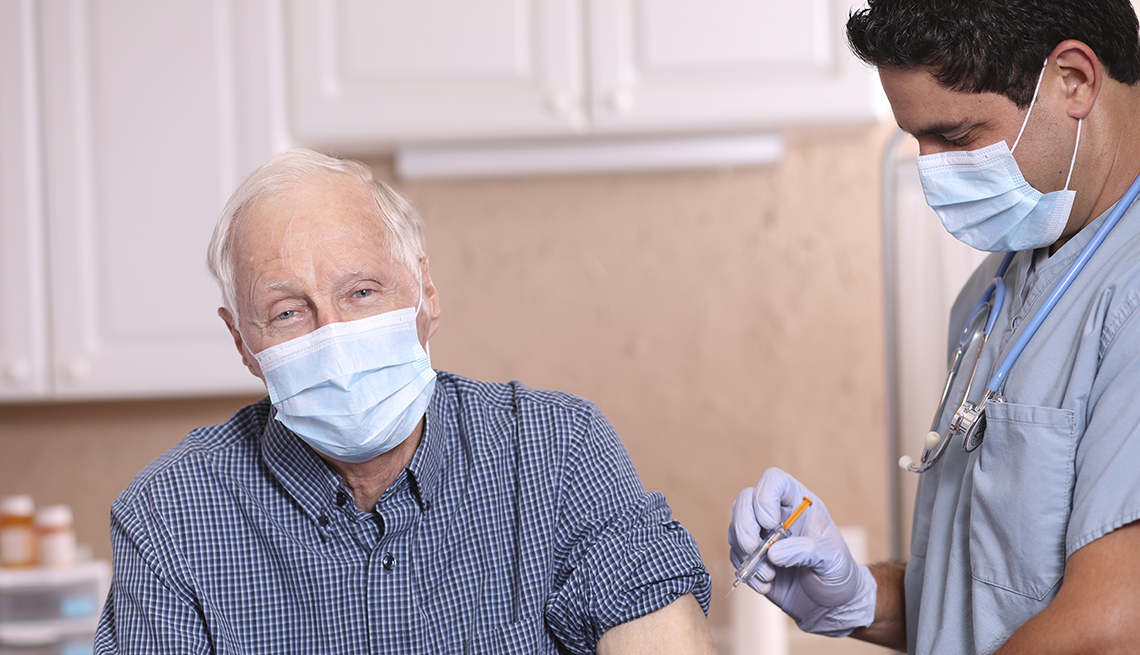
- Select a language for the TTS:
- UK English Female
- UK English Male
- US English Female
- US English Male
- Australian Female
- Australian Male
- Language selected: (auto detect) - EN
Play all audios:
Again, this is a decision your doctor and surgical team can help you make, depending on what's best for your individual situation. KEEP FOLLOW-UP CANCER SCREENINGS Similar to most other
preventive appointments, routine cancer screenings have come to a standstill since March. A report from the health care technology company Komodo Health found that colonoscopies and
biopsies performed to diagnose colon cancer declined by nearly 90 percent between January and mid-April, compared with the same period last year; cervical cancer screenings were down by more
than 68 percent. This means thousands of Americans will receive a delayed cancer diagnosis because of the pandemic, explains William G. Cance, M.D., a surgical oncologist and chief medical
and scientific officer at the American Cancer Society (ACS). "And the problem that we see is that a lot of patients will just go to the back of the line” when it comes to rescheduling
screenings, he adds. “So that's an even further delay.” As routine screenings get restarted, some people need to be seen sooner than others. For example, if you have a family history of
breast cancer, or have had an abnormal mammogram in the past and are due for one soon, “definitely do not put off your screening,” Cance says. The same goes for cervical and colon cancer
screenings in higher-risk individuals. It's also important to contact a doctor right away if you are having any symptoms of cancer, such as breast changes, bowel changes or severe
fatigue. For asymptomatic individuals whose previous screenings were clear and who do not have a family history of cancer, postponing a preventive test another few months probably
“won't make any difference,” says Jacqueline W. Fincher, M.D., an internist and president of the American College of Physicians. However, if you are worried about getting pushed to the
back of the line due to the backlog of deferred appointments, “be your own advocate” and ask to be seen in a timelier manner, Cance says. SOME CHRONIC CONDITIONS REQUIRE IN-PERSON CARE While
some chronic conditions can be monitored at home with basic medical equipment and regular telehealth check-ins, others need to be dealt with in person. One example is high blood pressure or
blood sugar that is not well-managed, Fendrick says. There are also patients on blood thinners who need routine blood draws to check their medication levels, “so those patients should
probably go get them done,” he adds. Patients with congestive heart failure or chronic kidney disease may also need more frequent in-person evaluations and treatments to make sure they
don't develop more acute conditions, Fincher notes. “With chronic medical problems, you cannot continue to put them off. At some point, you're going to have to be seen,” she adds.
The good news is, these are not appointments you need to proactively schedule on your own. “Your primary care doctor is your go-to person that's going to help you” decide when you need
to be seen, Fincher says. So call your doctor's office and start the conversation, if you haven't already. "You don't have to be your own doctor; you don't have to
make these decisions in isolation,” she adds.








